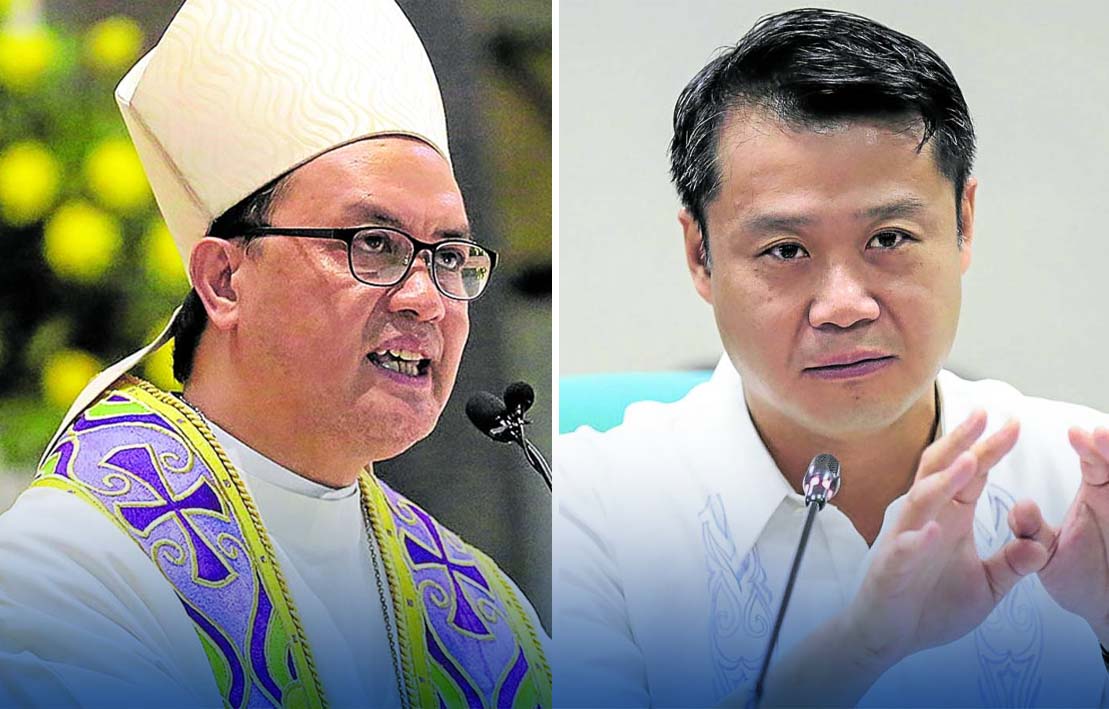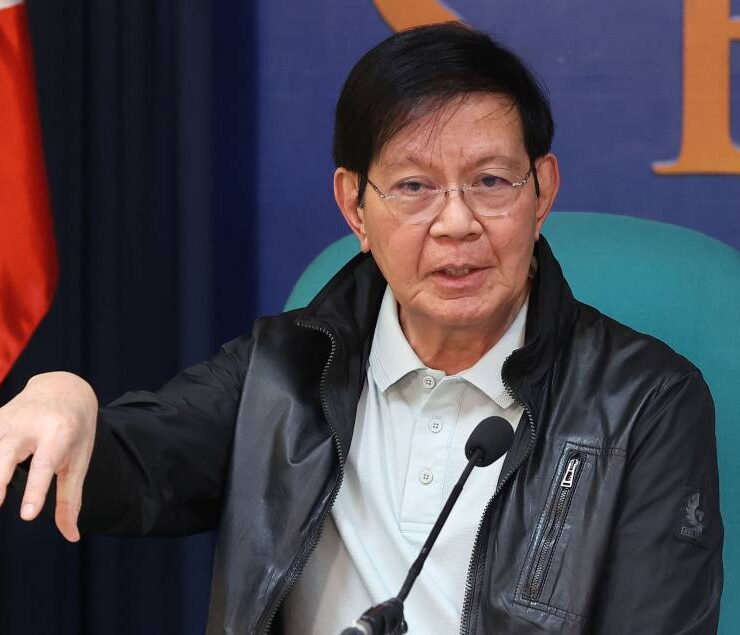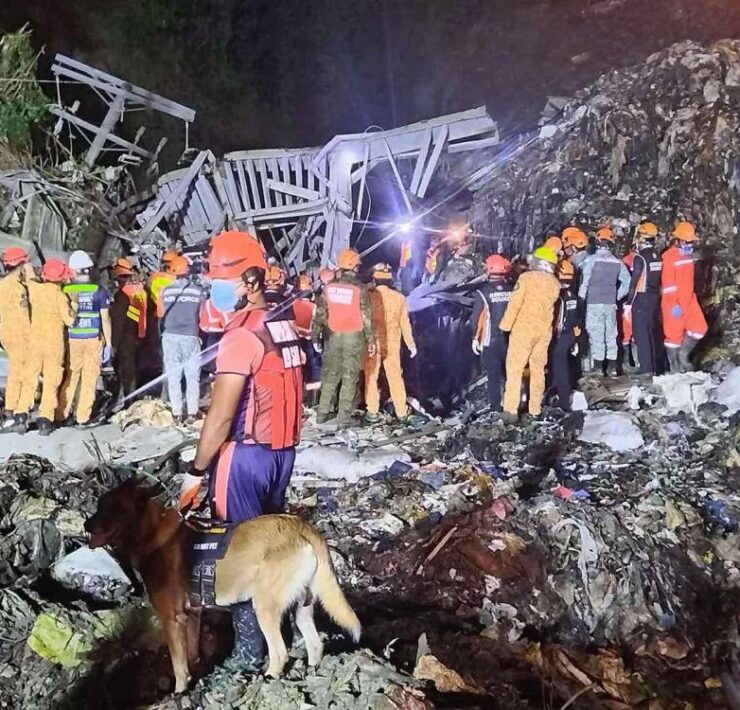CBCP call, proposed curbs put PH e-gambling under scrutiny

A senator’s proposal for tighter regulation and a Catholic Church leader’s expression of concern have put online gaming in the country under renewed scrutiny.
A bill filed by Sen. Sherwin Gatchalian which seeks to tighten online gaming regulations and prohibit the use of e-wallets spooked investors on Wednesday, causing a rare sell-off in shares of stock market darling DigiPlus Interactive Corp.
Drawing more attention to the lucrative industry was Cardinal Pablo Virgilio David, who in a social media post on June 30 called out the government for failing to protect Filipinos, particularly the youth, from becoming “gambling addicts.”
Free fall
DigiPlus stocks slid by another 10 percent on Wednesday as investors priced in regulatory risks from Gatchalian’s proposal.
The company lost P5 to close at P45 per share, with P952 million worth of shares changing hands at the local bourse.
The free fall began on Tuesday, when DigiPlus lost 3.85 percent on initial news about Gatchalian’s bill.
But the market capitalization of DigiPlus, which is widely expected to join the main-share Philippine Stock Exchange index soon, remains formidable at P222.68 billion.
DigiPlus, the most actively traded company, operates online games BingoPlus, ArenaPlus and GameZone. It is firming up its debut in Brazil later this year.
Tighter regulations
Gatchalian filed the yet unnumbered bill on Tuesday seeking to impose stricter regulations in a bid to curb the increasing gambling addiction particularly among the youth.
Among others, the measure seeks to require stricter know-your-customer rule, regulate advertising, impose a minimum top-up threshold of P10,000 and prevent e-wallets like GCash and Maya from acting as online payment platforms for online betting. The threshold is to discourage the poor from spending hard-earned money on gaming.
“Many families have had their futures destroyed because of online gambling, which are made easier by e-wallet,” said Gatchalian in a press briefing.
“Due to its accessibility, online gambling activities have magnified the dangers from gambling and have been linked to the erosion of our moral fibers, as it has caused an increase in mental health problems, financial problems, addictive behavior, vices and crime rates,” he added.
The measure also proposes to increase the age of players from 18 to 21.
Gatchalian, however, said he would not push for the total ban of online gambling to prevent providers from going underground.
Fears of total ban
The market nevertheless fears a total ban, said Joseph Roxas, president of stock brokerage Eagle Equities Inc.
Roxas also noted that while the measure is meant to prevent low-income earners from participating in online gaming, the threshold should not be too high.
In a research note, online stockbroker COL Financial said the bill, despite being in the early stages, still “poses a risk to the growth of the online gaming sector.”
COL downgraded its recommendation on DigiPlus from “buy” to “hold,” noting that the current price was already higher than its fair value estimate of P48.55 per share.
“Banning online gaming is not an option for the senator as this will likely push online gaming underground, leading to lost revenues for the government. It seems Senator Gatchalian merely wants strict regulation of the industry so no underaged players are allowed to play,” COL said.
“The minimum top-up and prohibiting links with e-wallets lessens the ease of betting, mostly for low-income earners, and helps prevent them from spending a significant amount of their earnings in gambling,” it added.
Negative impact
While it may be “positive for society,” COL said, the proposal would pose a risk to the growth of the gaming industry, given that players of online games easily top up through e-wallets like GCash and Maya.
“The minimum top-up will also hinder the daily playing of the low-end market, which accounts for a big share of the online gaming sector,” COL said.
COL recalled that early this year, there were talks that the Bangko Sentral ng Pilipinas was likewise looking to regulate online gaming in digital market places.
“These regulations, if implemented, will have a negative impact on growth,” COL said.
‘Absurd’
But while accessibility of online gambling has spurred the industry’s growth, Cardinal David said it had also brought the vice into homes and smartphones through “electronic games” or e-games.
“Who needs to sneak into a high-end casino when the casino has been brought into every living room, every bedroom, every child’s pocket—right there on the glowing screen of a smartphone?” David, bishop of Kalookan and president of the Catholic Bishops’ Conference of the Philippines, said in a Facebook post.
“Who cares if children, supposed to be studying, now bet away their OFW parents’ hard-earned remittances—sent through GCash, wagered online, and worse, gambled on credit? Parents’ money lost before it even lands on the dinner table,” he added.
According to David, while the government has banned Philippine offshore gaming operators and online “sabong” (cockfighting games), it made online gambling more accessible to Filipinos of all ages, 24 hours a day, seven days a week.
“Nothing could be more absurd than a government agency wringing its hands over illegal offshore gambling sites—when it has already legalized inland online gambling, fully, completely, brazenly,” he said.
‘Legal pushers’
The cardinal also took issue with having celebrity endorsers as “legal pushers” of online gambling.
“Who cares if young celebrities shamelessly hawk these gambling sites on social media—prostituting themselves for a fee, in the service of conscience-less billionaires who cast their digital fishnets far and wide, reeling in the gullible and the desperate?” he said.
“Goodbye studies. Goodbye decent jobs. Goodbye the hope of hardworking families. And hello—hello to a whole generation of gambling addicts,” David added.
“People didn’t care about killing addicts,” he said, referring to the bloody war on drugs during the Duterte administration. “[N]ow people don’t seem to care about breeding them.’’
“We are not just negligent—we are complicit. And when an entire generation is sacrificed on the altar of easy profit, we can only ask: who will save us from ourselves? We are doomed—unless we wake up,” the cardinal added.
E-games leading growth
In May 2025, the Philippine Amusement and Gaming Corp. (Pagcor) reported a gross gaming revenue (GGR) of P104.12 billion for the first quarter of the year, marking a 27.44-percent increase compared to the same period in 2024.
Pagcor chair and CEO Alejandro Tengco said the surge marks a critical turning point in the sector, with e-games now leading in revenue generation for the first time, contributing P51.39 billion or 49.36 percent of the total GGR for the quarter.
He also emphasized that the rise of the e-games industry has drastically reshaped the Philippine gaming landscape.
“As digital platforms take center stage, the Philippine gaming industry is likewise undergoing a paradigm shift. Hence, our goal as a regulator is to strike the right balance between innovation, player protection and long-term industry sustainability,” he said.
Accredited players
Licensed casinos, which have historically dominated the GGR landscape, generated P49.28 billion, accounting for 47.32 percent of the industry’s total. Meanwhile, Pagcor-operated casinos generated P3.45 billion in revenues, making up 3.31 percent of the GGR.
As of June 19, 2025, there were 64 Pagcor-accredited gaming system administrators and 12 online gaming platforms servicing licensed casinos.
Pagcor already projected a 17-percent growth in the local gambling industry’s total revenues for the year, driven by the strong performance of the e-gaming sector. —WITH REPORTS FROM TINA G. SANTOS AND INQUIRER RESEARCH
Sources: Inquirer Archives, pagcor.ph





















